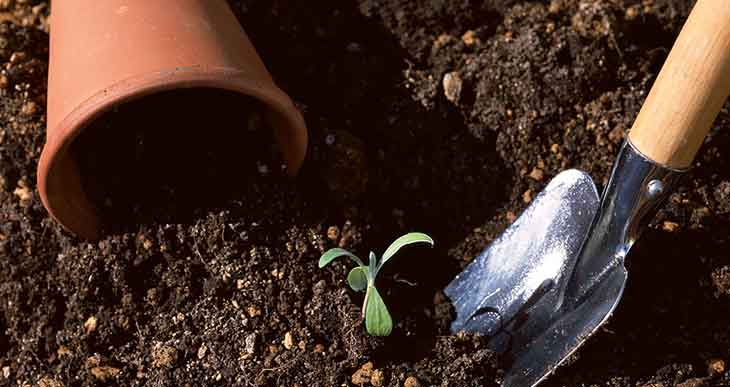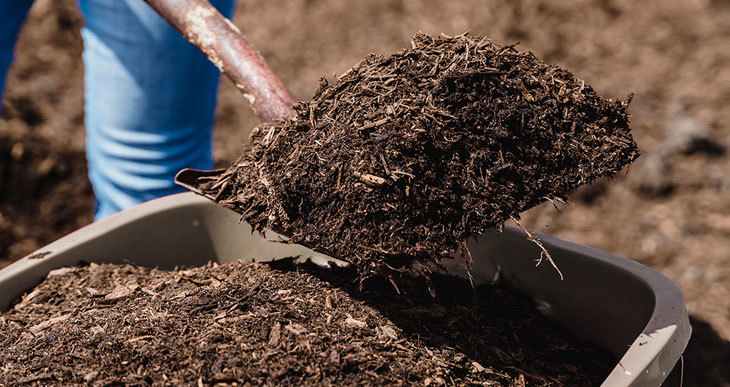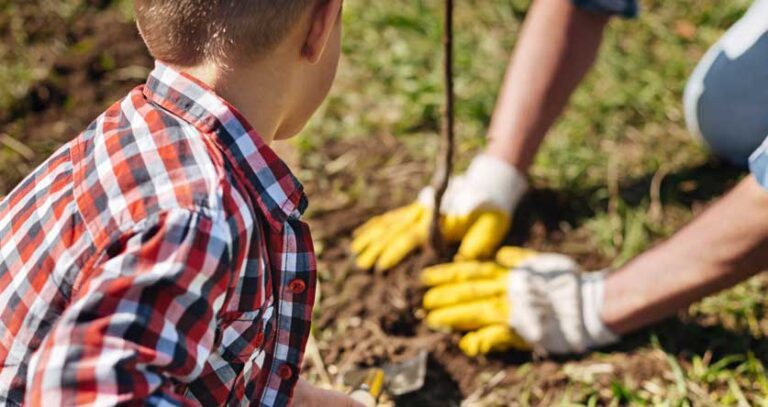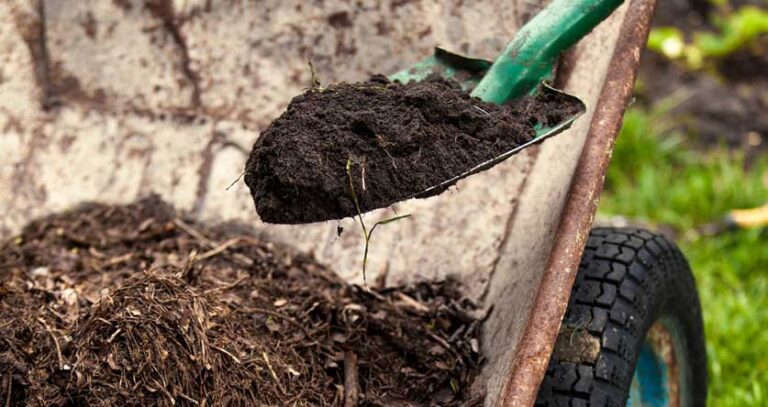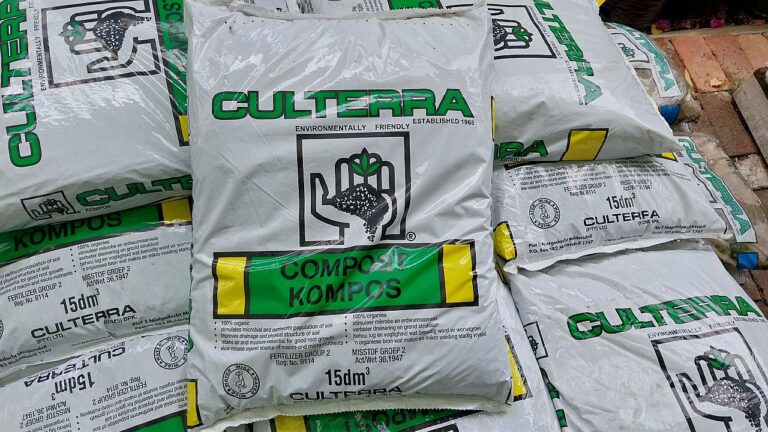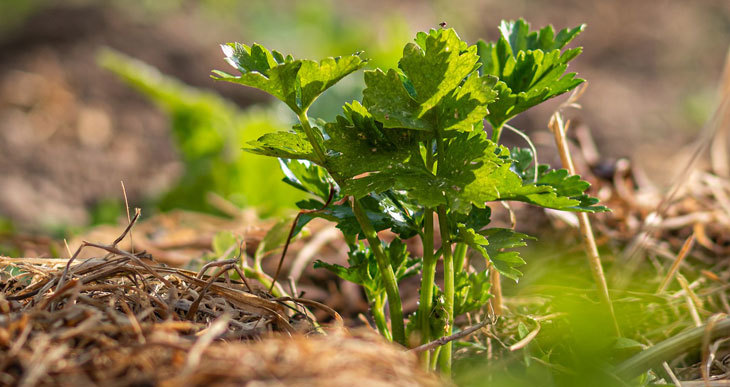Compost For Raised Beds (How To Do It Right!)
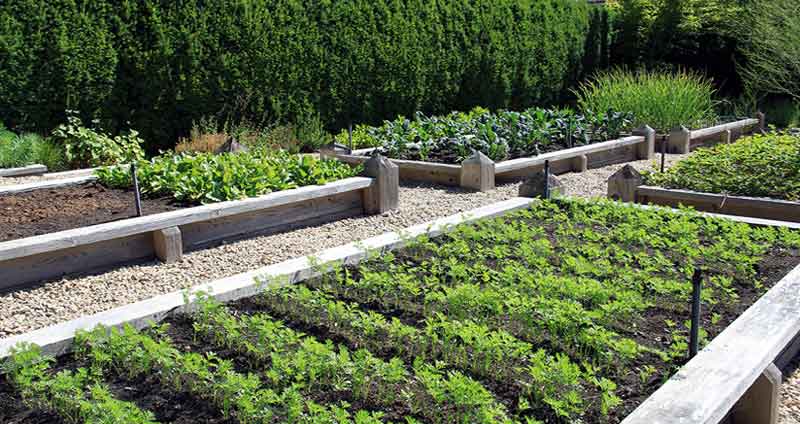
Gardening in raised beds gives the gardener a significant level of control over the growing environment for their plants.
But since you are not planting in the ground, you need to provide the best possible soil health for your plants.
Compost can help you achieve this. It can improve nutrient availability, drainage, and water retention and reduce plant diseases.
But what’s the best compost to use, and how do you apply it to your raised beds?
In this article, I’ll explain everything you need to know.
Adding Compost To Raised Garden Beds
Compost is a crucial ingredient for any raised bed. It ensures plants have access to the correct quantity and nutrients to promote healthy growth and fruiting. Good quality compost is essential for optimum results and must be mixed with other components for a healthy growing medium.
Most gardeners know the importance of compost for their plants, but if you are new to raised bed gardening, you may not know what compost to use, when to use it, and how much to use.
Using the right compost mix in your raised beds can impact the level of success you have growing your plants.
The critical aspects of compost for raised beds include the following considerations.
- Use quality compost.
- Mix the compost with topsoil and potting soil for the best results as a growing medium.
- Use compost as a top layer nutrient supply in the raised bed.
- Make your own compost.
Is Compost Good For Raised Beds?
Compost is not only good for raised beds, but it is critical for raised bed gardening. Adding compost to your raised garden bed provides many advantages for your plants, other than being a food source.
Raised bed gardening is almost an artificial growing environment for your plants. Therefore, you will need to provide the perfect growing conditions for healthy plants with a good yield!
Compost in raised beds offers the following advantages:
- Nutrient supply. The compost is a ready supply of easily accessible food for the growing plants.
- Introduction of micro-organisms. Compost can introduce beneficial organisms into the growing medium that help plants uptake nutrients and supports root health.
- Aeration of the growing medium. Plant roots need access to air, which is usually supplied by gaps and pockets in the soil. Adding un-sifted compost with varying-sized particles helps to increase the air space in the earth, giving the roots access to oxygen.
- Moisture retention. Compost in the growing medium provides moisture retention, preventing the soil from drying too quickly and reducing the amount of water needed.
Should I Use Topsoil Or Compost For Raised Beds?
Using topsoil alone is not a good strategy for raised bed gardening because it has several limitations. The cost can be problematic, and topsoil is not the best solution for optimum fertility.
You may think that using topsoil alone in your raised bed would mimic a more natural growing environment for your plants.
You should not use topsoil alone for the following reasons:
- Topsoil can be expensive. If you do not have a supply of topsoil from your garden, you will have to buy the topsoil, which can be a costly undertaking.
- Topsoil can introduce weeds. Suppose the topsoil is not “top-quality.” In that case, it can introduce weed seeds to your raised bed, which become a constant source of frustration, and the weeds will compete for resources with your plants.
- Limited nutrients in topsoil. Good quality topsoil will have a good level of nutrients but not enough to sustain plants throughout the growing season.
- Topsoil will compact over time. Topsoil without the organic component provided by compost will compact and become difficult for roots to push through.
- Water drains through topsoil quickly. Topsoil is not suitable for water retention. Water from above will drain through the topsoil quite rapidly, leaving little moisture for the roots.
In contrast to the expense of topsoil, compost can be made at home in your garden from waste material you would normally discard.
Weed seeds can also be introduced to your garden if you buy compost! I’ve known gardeners who ran out of homemade compost and used store-bought compost to end up with weeds in their beds!
But this is less likely if the compost was produced by yourself using a carefully monitored composting method!
Can You Fill A Raised Bed With Just Compost?
Using compost alone in your raised beds can work for certain plants if the compost is well matured, but it may also be detrimental to other plants.
Using topsoil alone in your raised beds is not a good choice. Likewise, using compost alone is also not the best option.
If the compost is not well matured, the decomposing process will continue, damaging the plants’ roots and causing leaf scorching.
This is due to nutrients being used up by the rotting compost.
If you use mature compost, too much access to nutrients is not suitable for some plants, particularly nitrogen. In addition, excess feeding from large quantities of compost can promote leaf growth but not fruit production.
What Is The Best Compost For Raised Bed Gardening?
There is no one-size-fits-all answer to this compost question, but one of the best options is homemade compost that is well matured. If using commercially bagged compost, make sure the contents have been pasteurized to kill off pathogens and weed seeds.
So, if you are planning a raised bed garden, what compost should you use, and how and when should you add the compost to the growing medium?
The best guidance I can offer is some guidelines you can use as a starting point. But you will need to tweak these quantities and strategies depending on your local situation.
Vegetable Compost For Raised Beds
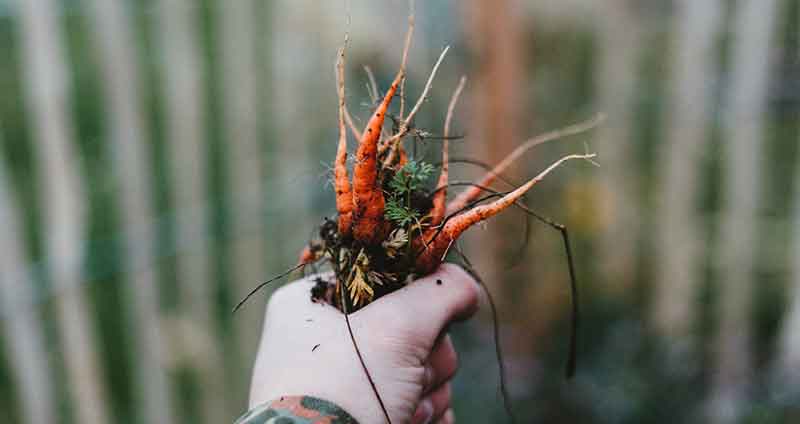
The best compost for raised beds, particularly for food crops, is an organic compost, preferably compost you make yourself and has been given time to cure properly.
The plants most commonly grown in raised beds are vegetables or food crops, which generally require more nutrients than other plants. As a result, the plant uses many resources to develop good healthy, nutritious fruit, which in turn becomes healthy, nutritious food for you and your family.
Making the compost yourself means knowing exactly what went into making the compost. However, you will probably need more compost than you can produce yourself, particularly when setting up your raised beds.
Buying compost will be your only way to complement the compost you produce yourself. It is best to select a good quality compost from a reputable supplier to ensure you are getting well matured, clean organic compost. Buying in bulk from such a compost supplier will give good cost savings in the long run.
Avoid using immature compost on food crops. Harmful pathogens might be present in unfinished compost. These can transfer to the food plants and your fruit and vegetables. Also, immature compost continues to decay, which uses up oxygen and nitrogen, thus starving your plants.
How To Add Compost To Raised Beds
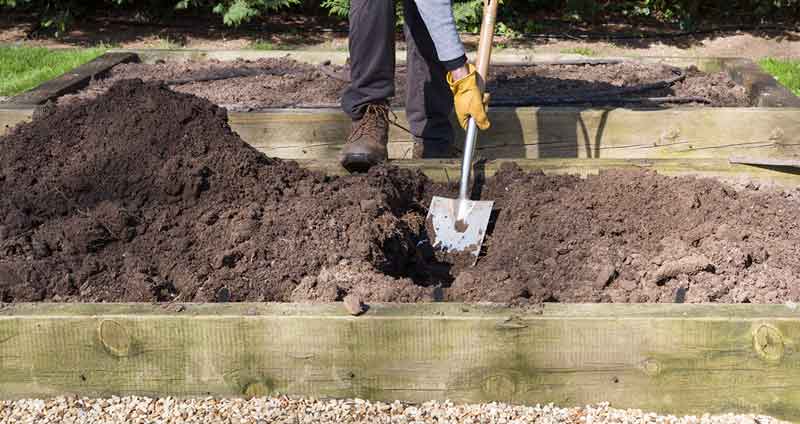
There are essentially two main ways to add compost to your raised bed. The first way is when you are constructing and filling the raised bed, and the second is the continual adding of compost to feed the plants.
The mixture you use in your raised bed will be the primary growing medium to support your plants and provide a healthy environment. Therefore, filling the entire bed with compost is not practical nor wise.
A good mix to use as a growing medium for your raised bed is the 6:3:1 ratio as follows.
- 60% good quality topsoil
- 30% good quality compost
- 10% potting soil, which includes ingredients such as peat moss.
These percentages are by volume of your raised bed. The mixture should be mixed together thoroughly to ensure an even distribution of all the components.
If you have smaller raised beds, you can use a 50-50 mixture of compost with potting soil as an alternative.
Compost to feed your plants can be added to the upper layer of the raised bed growing medium before each planting. Spread 2-inches of compost across the top of the bed and mix this into the upper layer using a garden fork or spade.
You can also use compost as a mulch by spreading a 2 to 4-inch layer on the bed and leaving it unturned. However, this method should be used with caution, as the nutrients in high concentrations can be detrimental to some plants.
When To Add Compost To A Raised Bed
Compost should be added to the filling mix for the raised bed when the raised bed is being constructed. Compost in the upper layer can be added annually at the beginning of each growing season.
You may need to add additional compost during the growing season, depending on the needs of the crop you have planted in the bed. This extra compost should be added more conservatively since you can always add more compost if needed. But you can not remove it once it is added.
How Much Compost Do I Need For A Raised Bed?
To work out how much compost you need for a raised bed, you need to know the volume of your raised bed in cubic feet.
If your raised bed is 6-feet by 8-feet and 4-foot high, the volume is calculated by multiplying these measurements together.
6-feet x 8-feet x 4-feet = 192 cubic feet
Using the ratios we mentioned earlier, you will need 115.2cubic feet of topsoil, 57.6 cubic feet of compost, and 19.2 cubic feet of potting soil.
To cover the same size bed with a 2-inch top layer of compost for feeding, you will need roughly 8 cubic feet of compost.
This compost calculator can help you determine the quantities you need.
How To Make Compost For Raised Beds
Making compost for raised garden beds will require multiple methods to ensure an ample enough supply of compost.
Most gardeners who have raised beds use a combination of tumblers to compost kitchen waste, bins for smaller garden waste, and compost piles for larger organic materials.
Suppose you do not have the space for compost piles. In that case, you can use a compost tumbler to recycle your kitchen waste and supplement your compost needs by purchasing quality compost from a reputable supplier.
Conclusion
Good quality compost is one of the most necessary components for the growing medium in a raised bed garden. It provides food for your plants, water retention in the soil, and introduces beneficial microbes.
Compost should be added to the filling mixture for your raised bed and used and an annual or periodic feeding for your plants, depending on their specific needs.
Whichever way you use compost in your raised beds, there is no doubt that it is an indispensable part of your raised garden bed strategy!


